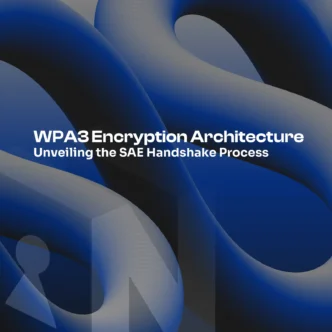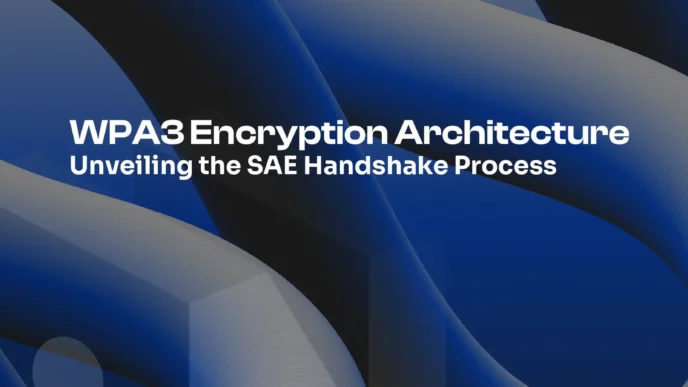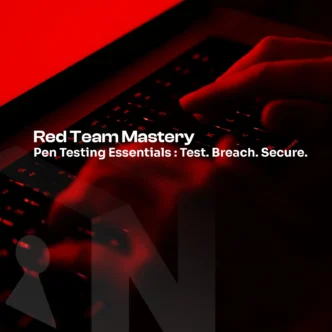In the competitive cybersecurity landscape, technical expertise and proven, real-world skills are essential. Today, certifications aren’t just a line on a resume—they are a strategic asset. Employers are increasingly honing in on a select group of certifications that offer a reliable gauge of an applicant’s capabilities. When it comes to truly impactful credentials, the emphasis is on advanced certifications that blend theoretical knowledge with hands-on proficiency.
This article examines why the right certifications are critical in cybersecurity job hunting, the role they play in career advancement, and which certifications really make a difference—especially in offensive security. We’ll delve into how certifications such as the Offensive Security Certified Professional (OSCP), Certified Information Systems Security Professional (CISSP), and advanced offensive credentials like OSWE and OSCE provide professionals with a competitive edge in today’s hiring environment.
The Role of Certifications in Cybersecurity Hiring
Certifications serve as a standardized measure of competence in an industry where skills evolve rapidly. Employers seek professionals who can address modern security challenges, and recognized certifications are a reliable way to verify those skills. As organizations face increasing cyber threats, hiring managers are using certifications as a critical filter during the recruitment process.
Demonstrable Expertise and Real-World Skills
The modern cybersecurity professional must navigate an environment where theoretical knowledge alone is insufficient. Employers are looking for evidence of hands-on abilities:
- Practical Problem-Solving: Advanced certifications require candidates to engage in realistic scenarios, making them well-equipped to identify and counter real-world threats.
- Rigorous Assessment: Certification exams are designed to be challenging, ensuring that only those with a deep understanding and practical skill set earn the credentials.
- Continuous Learning: Cyber threats evolve daily. Certification holders prove their commitment to staying updated with emerging technologies and attack methodologies.
Strategic Hiring Advantages
Organizations benefit from hiring certified professionals in several ways:
- Streamlined Recruitment: Certifications reduce the time needed for technical screenings and assessments.
- Enhanced Credibility: A shortlist of certified candidates immediately conveys that these professionals have met rigorous industry standards.
- Competitive Differentiation: In a market flooded with applicants, a few key certifications can be the deciding factor in moving forward with an interview or job offer.
Critical Certifications Shaping the Cybersecurity Landscape
While many certifications exist, a focused set of credentials have emerged as game changers in the cybersecurity hiring process. The following certifications have been recognized for their ability to make a significant impact on a candidate’s career prospects.
Offensive Security Certified Professional (OSCP)
The OSCP is widely considered the gold standard for offensive security. It emphasizes practical skills, requiring candidates to penetrate multiple systems and provide comprehensive documentation of their methodologies.
- Real-World Simulation: The OSCP exam replicates real-world penetration testing challenges, ensuring that certification holders can think on their feet.
- Industry Recognition: Employers value the OSCP for its rigorous, hands-on approach. Candidates with an OSCP certification demonstrate they have the stamina and problem-solving skills necessary for complex attack simulations.
- Career Impact: Many hiring managers report that the OSCP stands out as a mark of excellence in offensive security. It’s a certification that can be a deciding factor when organizations seek top-tier penetration testers.
Certified Information Systems Security Professional (CISSP)
While the CISSP is not strictly an offensive security certification, its comprehensive coverage of security principles makes it indispensable for senior roles.
- Holistic Security Perspective: CISSP covers everything from risk management and policy development to technical aspects of cybersecurity. This breadth is particularly important for leadership roles where strategic oversight is crucial.
- Validated Expertise: Earning a CISSP involves demonstrating an in-depth understanding of a wide array of cybersecurity topics, making it a benchmark for experienced professionals.
- Management and Technical Integration: In environments where technical proficiency must be balanced with strategic planning, the CISSP serves as an essential credential that verifies both technical and managerial competencies.
Offensive Security Advanced Credentials: OSWE and OSCE
For professionals who wish to extend their expertise beyond the basics of offensive security, advanced offensive security certifications like OSWE and OSCE are increasingly important.
Offensive Security Web Expert (OSWE)
- Specialized Skill Set: The OSWE certification focuses on web application security. It ensures that professionals are adept at identifying vulnerabilities in modern web environments.
- Advanced Testing: Candidates must demonstrate their ability to exploit and remediate vulnerabilities in complex web applications, a critical skill given the prevalence of web-based attacks.
- Industry Demand: As organizations continue to invest in digital transformation, securing web applications becomes paramount. OSWE-certified professionals are in high demand for roles that require deep technical expertise in web security.
Offensive Security Certified Expert (OSCE)
- Beyond the Basics: The OSCE takes offensive security to an even higher level, testing candidates on advanced penetration testing techniques and methodologies.
- Problem-Solving Excellence: The OSCE exam pushes candidates to apply innovative thinking and technical prowess to overcome challenging security scenarios.
- Career Differentiator: The OSCE is a clear signal to employers that a candidate not only understands the fundamentals but is also capable of tackling sophisticated cybersecurity threats in dynamic environments.
How These Certifications Influence Career Trajectories
Enhancing Professional Credibility
Possessing one or more of these certifications signals to employers that a professional is committed to excellence. It provides an instant layer of trust, reducing the time employers spend evaluating a candidate’s potential.
- Rapid Shortlisting: Hiring managers often prioritize certified candidates, especially when the skills gap in cybersecurity is a critical issue.
- Leadership Opportunities: The combination of technical and strategic expertise verified by credentials like CISSP often leads to faster promotions and broader career opportunities.
- Marketability: Certified professionals frequently command higher salaries and are more competitive in both local and global job markets.
Building a Resilient Career in a Dynamic Field
Cybersecurity is a field marked by continuous evolution. Staying certified is not a one-time achievement but an ongoing process that requires professionals to update their skills regularly. This continuous learning:
- Ensures Relevance: Regular recertification or ongoing education requirements keep professionals abreast of the latest threats, tools, and defense mechanisms.
- Adapts to Emerging Trends: As new technologies such as artificial intelligence, machine learning, and quantum computing begin to influence the cybersecurity landscape, advanced certifications provide the framework to understand and mitigate related risks.
- Fosters Community and Networking: Certification bodies often provide access to professional networks, forums, and continued learning opportunities, which can be invaluable for career advancement.
Navigating the Certification Journey
Achieving certification is a commitment that extends beyond exam preparation. Here are some best practices for those embarking on this path:
Focused Study and Hands-On Experience
The most successful candidates balance structured study with practical application. Consider the following strategies:
- Simulation Labs: Engage in real-world exercises and labs that simulate cyber attack scenarios. Many certification programs offer access to virtual labs where candidates can test their skills.
- Peer Groups and Forums: Join communities where professionals discuss challenges, share study tips, and provide mutual support.
- Official Study Materials: Invest in quality study guides and courses offered by recognized training providers. These resources are designed to reflect the current state of cybersecurity challenges and methodologies.
Time Management and Strategic Learning
Balancing work, study, and personal life is essential during certification preparation. Effective time management and a clear study plan can make the difference between passing and failing.
- Set Clear Goals: Define daily, weekly, and monthly objectives to stay on track.
- Regular Assessments: Take practice exams to gauge your readiness and adjust your study plan as needed.
- Maintain Consistency: Even short, daily study sessions can lead to significant progress over time.
Conclusion
In today’s competitive cybersecurity market, where cyber threats grow in sophistication and scale, the right certifications are crucial. Cybersecurity job hunting may come down to certifications that not only validate technical proficiency but also demonstrate a commitment to continuous learning and professional excellence.
Advanced certifications such as the Offensive Security Certified Professional (OSCP), Certified Information Systems Security Professional (CISSP), and the specialized offensive credentials like OSWE and OSCE are key differentiators. They serve as critical benchmarks in the hiring process, enhance professional credibility, and open doors to leadership opportunities. For professionals eager to thrive in a dynamic and challenging field, investing in these select certifications is more than a career move—it’s a strategic imperative.
Staying ahead in cybersecurity means continuously refining your skills and staying current with the latest trends and threats. As you navigate your career, consider these certifications as essential tools in your professional arsenal. Embrace the challenge, invest in your education, and let these certifications be the gateway to a rewarding and secure future in cybersecurity.













